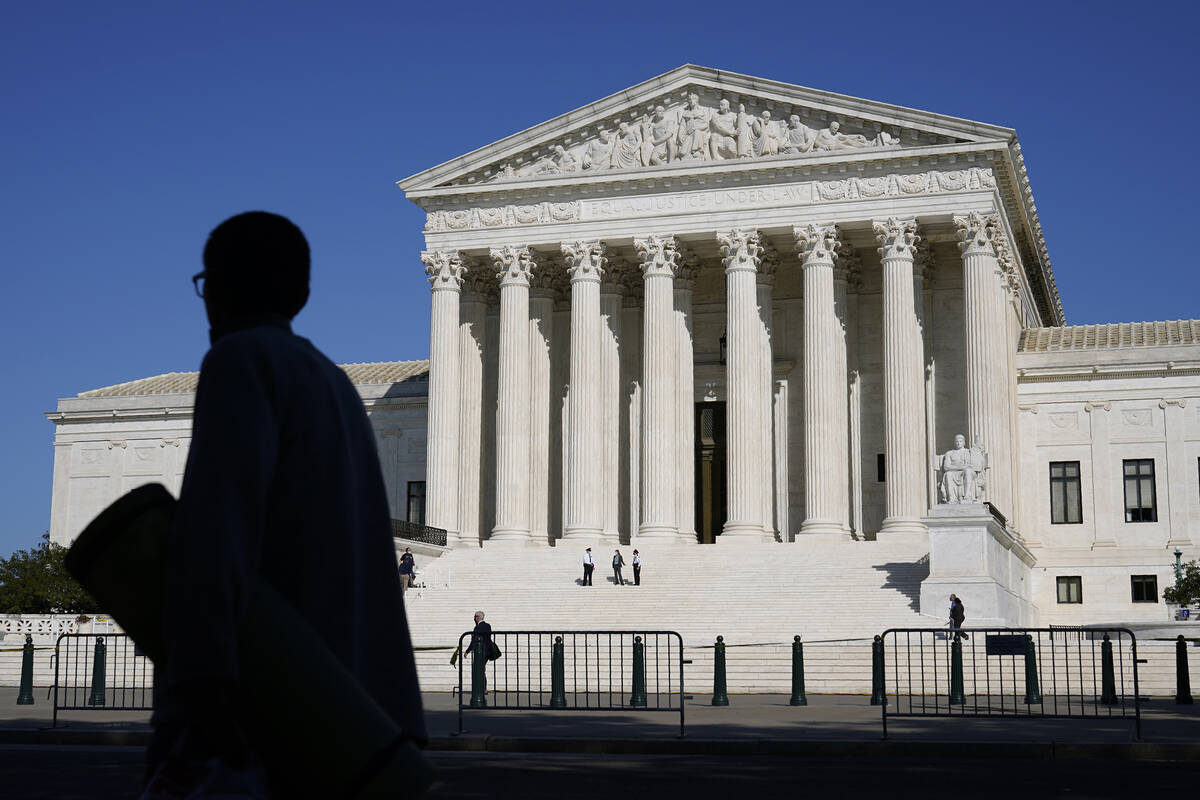EDITORIAL: Justice set to retire; high court takes on big cases
Big news at the U.S. Supreme Court this week. Justice Stephen Breyer, appointed to the high court by Bill Clinton in 1994, is expected to formally announce his retirement on Thursday. Justice Breyer votes reliably with the panel’s liberal wing, and President Joe Biden will nominate someone with a similar ideological viewpoint.
Justice Breyer’s decision highlights the dread coursing through Democrats regarding the November midterms. The possibility that the party will lose its congressional majorities — making it impossible for a far-left justice to win Senate confirmation — likely played a role in Justice Breyer’s retirement. Progressive activists have been nagging him to step down for months.
Meanwhile, the court this week agreed to hear a handful of additional cases, one of which provides the justices with an opportunity to stuff the administrative state back behind its constitutional boundaries. The case highlights the extent to which many federal bureaucracies recognize virtually no limits on their authority and marks the second time the Idaho plaintiffs have been forced to the Supreme Court.
For almost 20 years, Michael and Chantell Sackett have been in a Kafkaesque struggle with the EPA over their plan to build a home on their Idaho property. The land still stands vacant.
When the couple obtained local permits to begin work in 2007, the EPA — using a liberal interpretation of the Clean Water Act — intervened in and argued that the project required federal permission because it threatened a “wetland,” even though the land contains no water. The agency threatened fines of $37,500 per day.
Government attorneys also argued that the Sacketts had no right to seek relief in federal court until the agency officially enforced its order — although the daily fines would keep accumulating.
In 2012, a unanimous Supreme Court — liberals, centrists and conservatives alike — put an end to that nonsense and held that the couple had a constitutional right to contest the EPA’s action immediately.
Yet the EPA continued to claim regulatory authority over the property, using an expansive interpretation of a 2006 high court ruling that sought to temper the agency’s effort to define “navigable waters” of the United States as any puddle or drainage ditch. In their latest trip to the high court, the Sacketts are asking the justices to clarify that 16-year-old decision.
“Our case is a prime example of how the government handles challenges to its edicts: it has the time and a bottomless bag of taxpayer dollars at its disposal to outlast property owners in court,” the Sacketts said in a statement. “Not this time.” Good for them. Property rights are the foundation for a free society. The Supreme Court can strike a blow for this vital concept by holding the EPA responsible for an obvious overreach.






















